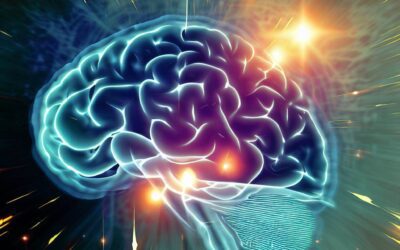Depression is a significant mental health issue that affects millions of people worldwide. It can be debilitating and impact various aspects of a person’s life. In this blog, we will explore what depression is, its causes, symptoms, and available treatment options. We will also discuss coping strategies and ways to support individuals dealing with depression.
Understanding Depression
Depression, also known as major depressive disorder (MDD), is a serious and persistent mood disorder. It goes beyond feeling sad occasionally; it is a pervasive sense of sadness and loss of interest or pleasure in most activities, lasting for weeks or months. Depression affects how a person thinks, feels, and behaves, often impairing their daily functioning.
Causes of Depression
While the exact causes of depression are not fully understood, it is believed to result from a combination of genetic, biological, environmental, and psychological factors. Some common triggers for depression include:
Genetics and Family History
People with a family history of depression may have a higher risk of developing the condition themselves. Certain genes are associated with an increased susceptibility to depression.
Neurotransmitter Imbalance
Chemical imbalances in the brain, particularly involving serotonin, norepinephrine, and dopamine, can play a role in depression.
Life Events and Stress
Major life changes, such as loss of a loved one, relationship issues, financial difficulties, or significant work-related stress, can trigger or exacerbate depression.
Medical Conditions
Certain medical conditions, such as chronic illness or hormonal imbalances, can contribute to the development of depression.
Signs and Symptoms of Depression
Depression can manifest in various ways, and its symptoms may vary from person to person. Some common signs of depression include:
Persistent Sadness
A deep and pervasive feeling of sadness that persists for most of the day, nearly every day.
Loss of Interest
Loss of interest or pleasure in activities that were once enjoyable.
Fatigue and Low Energy
Extreme fatigue and lack of energy, even for simple tasks.
Changes in Sleep Patterns
Insomnia or excessive sleeping.
Appetite and Weight Changes
Significant changes in appetite and weight, either a decrease or increase.
Feelings of Worthlessness
Feelings of guilt, worthlessness, or excessive self-criticism.
Difficulty Concentrating
Difficulty concentrating, making decisions, or remembering things.
Thoughts of Death or Suicide
Recurrent thoughts of death or suicide, or suicide attempts.
Seeking Help and Treatment
Depression is a treatable condition, and seeking help is crucial for recovery. Here are some treatment options available:
Psychotherapy
Psychotherapy, or talk therapy, is an essential component of depression treatment. Cognitive Behavioral Therapy (CBT) and Interpersonal Therapy (IPT) are effective in helping individuals develop coping strategies and address negative thought patterns.
Medication
Antidepressant medications, such as selective serotonin reuptake inhibitors (SSRIs) and serotonin-norepinephrine reuptake inhibitors (SNRIs), may be prescribed to help regulate brain chemicals and improve mood.
Lifestyle Changes
Incorporating healthy lifestyle habits, such as regular exercise, balanced nutrition, and sufficient sleep, can complement other treatment approaches.
Support Networks
Having a strong support system of friends and family who understand and empathize can provide invaluable emotional support during the recovery process.
Coping Strategies for Individuals with Depression
Coping with depression requires patience and understanding. Here are some strategies to help individuals manage their symptoms:
Self-Care Practices
Prioritizing self-care activities, such as engaging in hobbies, spending time in nature, or practicing mindfulness, can help improve overall well-being.
Regular Exercise
Physical activity has been shown to release endorphins, the “feel-good” hormones, which can positively impact mood.
Mindfulness and Meditation
Practicing mindfulness and meditation can help individuals stay present and reduce stress and anxiety.
Seeking Professional Help
It is essential for individuals with depression to seek professional help from qualified mental health providers.
Supporting Loved Ones with Depression
Support from friends and family can make a significant difference in the recovery journey of someone with depression. Here are some ways to support a loved one:
Listen and Validate Feelings
Actively listen to their feelings without judgment and validate their experiences.
Encourage Treatment
Offer support and encouragement to seek professional help and adhere to their treatment plan.
Be Patient
Understand that recovery from depression takes time, and be patient with their progress.
Conclusion
Depression is a serious mental health condition that affects millions of individuals worldwide. Understanding the signs, symptoms, and available treatment options is crucial for those dealing with depression and their loved ones. Seeking professional help, practicing self-care, and having a strong support system are essential for managing depression and improving overall well-being.
FAQs
- Is depression only a result of a negative mindset? No, depression is a complex condition with various contributing factors, including genetics, biology, and life experiences.
- Can depression occur without any identifiable cause? Yes, sometimes depression can arise without a clear external trigger. It may be related to chemical imbalances or internal factors.
- Are there specific groups more susceptible to depression? Yes, depression can affect anyone, but certain groups, such as teenagers, women, and individuals with a family history of depression, may be more at risk.
- Can lifestyle changes alone be sufficient to manage depression? In some cases of mild depression, lifestyle changes can be beneficial. However, severe or persistent depression often requires professional intervention.
- Is it normal to experience relapses in depression recovery? Yes, depression recovery can have ups and downs. Relapses are not uncommon, but with continued support and treatment, individuals can navigate through them.





